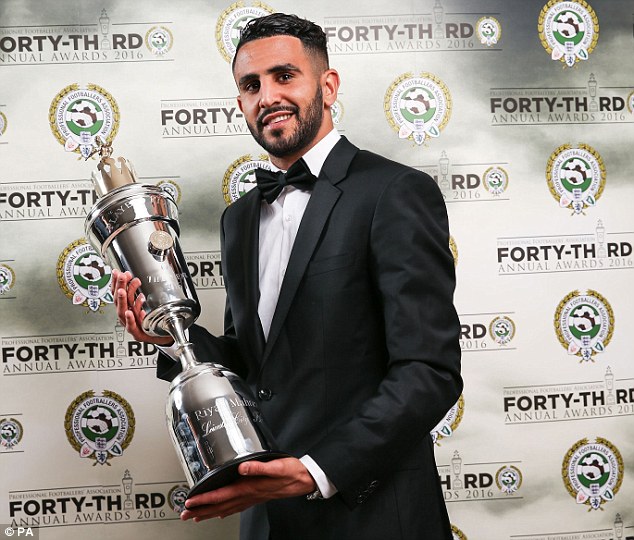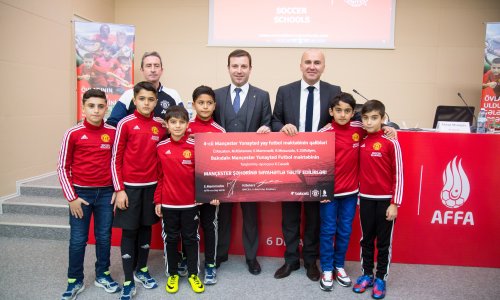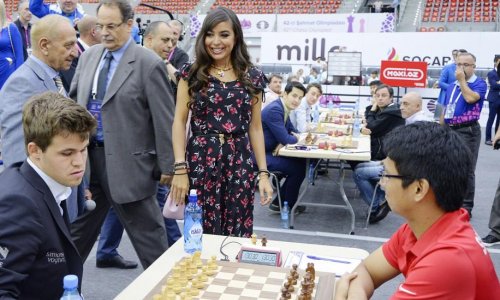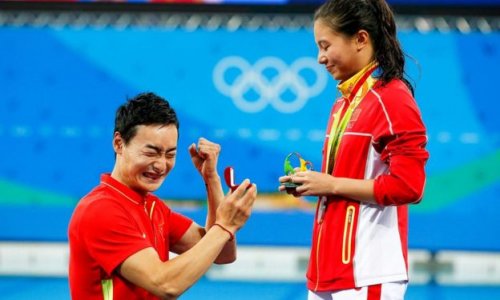Smartly dressed in his black tuxedo clutching the PFA Footballer of the Year trophy, Riyad Mahrez humbly thanked his peers in faltering English for their support to make him the sport's brightest new star.
Thrust into the limelight by the runaway success of his career, the shy 25-year-old Algerian has hidden the sorrow that his childhood hero and driving force behind his game, his father, has not been there to witness his success.
For behind the inspirational Leicester City midfielder’s skill and ambition is a story of a migrant family’s battle to survive in one of France's toughest neighbourhoods and the tragedy of divorce and premature death.
‘It was his father Ahmed who taught Riyad to play football,’ close family friend Abderrahim Belmakki told MailOnline.
‘He took him to every match. He took some of the training sessions and encouraged Riyad in every way.
‘Riyad was devastated when his father died.’
As the star faces one final hurdle on Sunday before his team will surely take the Premier League trophy, MailOnline can reveal the full story behind the young man who risen from a riot-hit Parisian suburb to the top of the biggest championship in the world.
Born to an Algerian father and a Moroccan mother the youngster did not have an easy start in life. The younger of two brothers, Riyad took his first steps in Sarcelles – one of the poorest and most dangerous communities in France.
It is the area the £55,000-a-week footballer's mother still calls home.
A concrete jungle of endless tower blocks on the outskirts of Paris the ‘village’ Sarcelles is renowned for its violence, drug dealing, immigrant community and chronic unemployment.
The police shooting of two youths in October 2005 sparked rioting in Sarcelles and other poverty-stricken suburbs of Paris which lasted weeks.
Night after night masked youths stole cars and then torched them, running pitched battles with heavily armed riot police.
A 1960s town planner's utopian dream of affordable housing, the network of flats have become a haven for criminals who exploit the shockingly high youth unemployment rate – some 40 per cent – as a recruiting tool for drug dealers and burglars.
Those with a job are lucky to earn above the minimum wage – just over £1,000 per month.
Crooks offer stolen mobile phones amid the chaos of the bustling covered market where fruit and vegetables are sold at rock-bottom prices.
A pro-Palestinian rally that descended into rioting in 2014 exposed widespread anti-Semitism among members of the North African community which control most of the shops.
Police cars patrol the streets apparently on permanent lookout.
MailOnline watched as a police operation in Sarcelles failed as the suspect escaped officers through a network of alleys.
‘In Sarcelles there has always been poverty, high unemployment, a lack of opportunities,’ said Mohamed Coulibaly, director of Riyad’s first football club AAS Sarcelles.
‘For us life after the riots was no different than life before the riots.’
Unsurprisingly, Riyad's mother Saliha for one can’t wait to leave the poverty-stricken ghetto where her son learned his skills.
She told MailOnline: ‘It’s too rough and there’s a lot of jealousy over Riyad’s success from guys he grew up with.
‘He gives them shirts but they give us hassle.
‘It’s not safe. They steal and burn cars.
‘I want to get away from here. We should be out of here in a few weeks.
‘We’ve bought a house not far away. We’re staying in the area, just not here.’
Despite its short-comings Sarcelles was a safe haven for Riyad’s father Ahmed. Coming to France from Algeria had literally saved his life.
He had grown up in the tiny village of El Khemis, near Tlemcen deep in the countryside of western Algeria, close to the Moroccan border.
From a middle class family Ahmed was a gifted student studying mathematics.
He was also a proficient sportsman himself, Ahmed had played for the village team against renowned clubs such as Cours d’Oran in the second division in his native Algeria in the 1970s.
However, everything changed after doctors diagnosed the young Ahmed with a condition which sent him running to Europe.
Abdelkadir Mahrez, a cousin who lives in the village of El Khemis, explained: ‘Ahmed had a serious heart condition. Algerian hospitals did not have the equipment needed to treat him, it was the beginning of the 1970s, after all. So he left for France to be treated.'
He would have died if he had stayed, Mr Belmakki claimed, but after arriving in France on his own, just 23 or 24, he had a pacemaker inserted, allowing him to continue his studies, eventually joining the firm Thomsons.
‘He worked as an electrical engineer,' recalled Mr Belmakki. 'He worked on projects like the sequencing of traffic lights and coin operated vending machines. He was a hard worker. He used to go to the mosque to pray every week.'
But he never forgot his first love, football.
Mr Belmakki continued: ‘He liked to play football. He was quite a gifted player. He played in midfield like Riyad. But he only played for amateur teams.'
And then Ahmed met and fell in love with a Moroccan woman, called Sahlia.
‘They got married and lived in Sarcelles,' said Mr Mahrez.
At first happily married Ahmed and Saliha had to two children, boys, Wahid and Riyad.
But sadly the marriage broke down.
Mr Belmakki told MailOnline: ‘They got divorced when Riyad was about eight years old.’
Ahmed was heart-broken to be separated from his boys, Mr Belmakki told MailOnline. So were the boys.
However Ahmed stayed in the area, and spent a lot of time with his boys, he explained.
Without their father’s salary the household struggled. Riyad’s mother Saliha found a badly paid job, as a cleaner Mr Belmakki believes, and managed somehow to make sure there was always food on the table.
But to be poor in Sarcelles was far from exceptional.
AAS Sarcelles director of football Mohamed Coulibaly explained: ‘Sarcelles is a poor village - one of the poorest communities in France.
‘Life for the people of Sarcelles has always been hard.
‘Riyad really is a boy from Sarcelles. He grew up here, his family live here and his friends are from here.’
Meanwhile Riyad was playing football – always playing football.
‘When I think back about Riyad I remember he was always with a ball,’ Mr Coulibaly told MailOnline.
‘He was like the cartoon character ‘Sport Billy’. He was always, always with a ball.
‘It would be midnight and he would be out in the street playing football with his friends.
‘That was what was so special about him. He was always playing, practising.’
Mr Belmakki agreed: ‘Riyad was always playing football, he was always with a ball.’
And amid the violence and rioting of 2005 Riyad, and his older brother Wahid, kept their heads down.
Their father had taught them better than that, Mr Belmakki told MailOnline.
‘They [Riyad and Wahid] didn’t get involved in any of the rioting.
‘He [Ahmed] also taught his sons to respect their religion, to pray and go to the mosque.
‘He told them: "Be afraid before God because he is always with you.”’
(www.dailymail.co.uk/news/article-3563326/A-secret-divorce-tragic-heart-attack-killed-footballer-father-riot-hit-ghetto-proud-mother-lives-incredible-family-history-55-000-week-Player-Year-Riyad-Mahrez.html?ito=social-facebook)



www.ann.az
Follow us !











